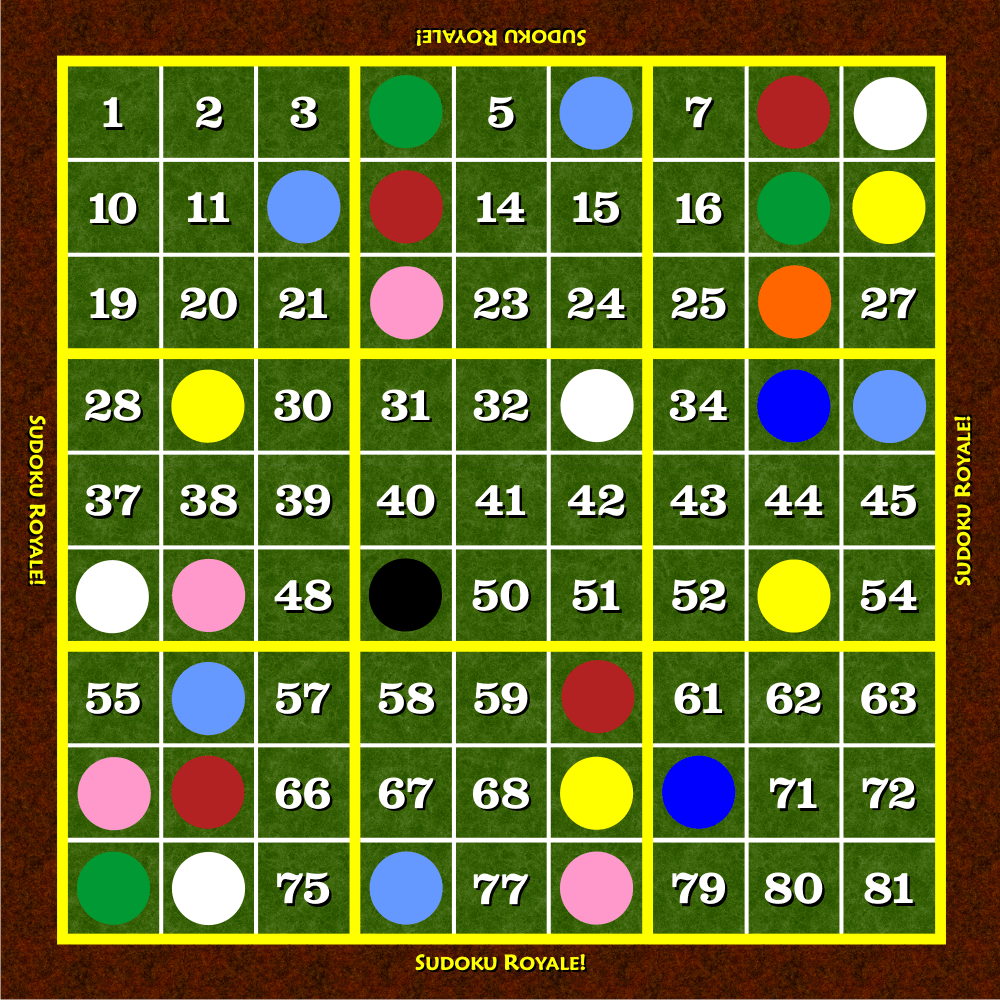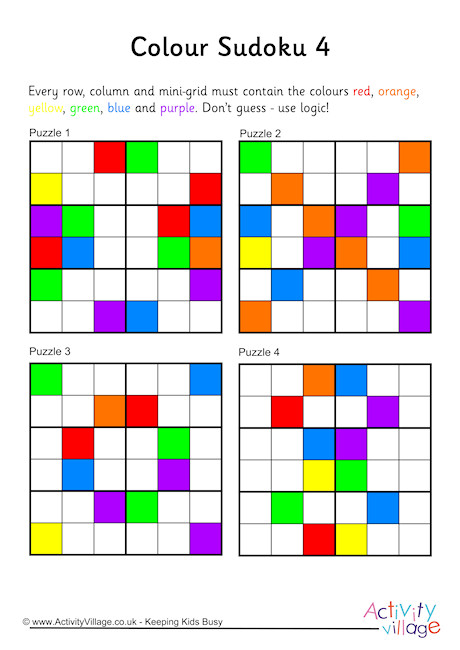

“We plan to scale our platform across the country and to launch new products that will further our mission to create a more humane and rehabilitative corrections system.” By the end of this year, this platform will support about 40,000 incarcerated people.Īmeelio’s innovation and positive contributions are turning heads.įrom Forbes to the Washington Post to Business Insider, Ameelio’s work has gained national attention. Pilot programs will soon operate in facilities in Colorado and Massachusetts.
#Color sudoku printable free#
“This will be a major blow to the predatory status quo,” Orchingwa said.Ĭonnect allows incarcerated people to have 30 minutes of video calls and also access e-messaging every day free of charge. Connect enables video calling and e-messaging between loved ones and incarcerated people.
#Color sudoku printable how to#
Its outreach projects inspired by current events included sending voting registration forms in Maine and Georgia during last year’s election, providing resources on how to receive stimulus payments, and sending an explanation of the Covid-19 vaccine in collaboration with the Marshall Project.Īnd recently, Ameelio went one step further with its “Connect” platform, the first-ever free prison video-calling platform, launched June 22 at Iowa Correctional Institution for Women. To date, Ameelio has reached 85,000 users from across the United States and abroad and sent more than 310,000 letters to incarcerated people.Īmeelio also serves as a distribution center, sending relevant information from organizations working with incarcerated people. A third-party company prints those electronic submissions and mails them to facilities the old-fashioned way-by snail mail, the only form prisons accept mail. Launched in April 2020, Ameelio users can electronically create postcards, upload photos, type letters, or send sudoku puzzles, inspirational quotes, recipes, news stories, and more to incarcerated people serving time anywhere in the country. It’s part of a growing movement Orchingwa calls “tech-lash,” employing technology to solve social issues. Ameelio’s website and app allow free communications between incarcerated people and the outside world. “And that’s how we are going to outcompete them.”Īmeelio, derived from the verb ameliorate (to make a bad or unpleasant situation better), is a nonprofit organization cofounded by Uzoma “Zo” Orchingwa ’14 and Gabe Saruhashi. “I think that these companies are on the wrong side of history,” he said. He began to see that overpriced prison communications were more than a matter of exploitation-they exacerbated mass incarceration, which already disproportionately impacts people of color and low-income people. “Because data shows that the more contact you have with your loved ones and the more support you have, the better you’re going to do post-release.” “Having this duopoly charge families exorbitant fees to stay connected is not only immoral, it’s also just impractical and irrational,” said Orchingwa, who garnered financial support for Ameelio from well-known tech minds like Jack Dorsey and organizations like the Mozilla Foundation.

It’s a business that generates approximately $1.2 billion per year and profits mainly two companies.

Until Ameelio, there wasn’t a free, not-for-profit alternative to prison communications that millions of people depend on every single day.

Why such a need? Because in jails and prisons, everything costs more than on the outside. He cofounded Ameelio, a nonprofit that includes a website and an app to support the flow of information and correspondence between incarcerated people and their loved ones on the outside-all for free. So Orchingwa decided to solve one of their many challenges: staying in touch. “It was a matter of the social conditions that America creates and allows to harbor.”Īnd among those conditions are injustices for incarcerated people and their families. “The fact that I end up at Cambridge and they end up incarcerated was not destiny,” said Orchingwa, whose close friends’ experience served as a wake-up call about injustices prevalent in society. Michael Wormser ’59 hopes to pass along his passion for “the actual book during this digital age” Lifelong Love of Books Inspires Planned Gifts to Support Colby Libraries and Establish Director Fund


 0 kommentar(er)
0 kommentar(er)
